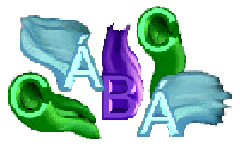It's Volapuk to me: trying to build the tower of Babel
People have never forgotten the legend about the tower of Babel. Nevertheless, they have always tried to restore the harmony that was once lost and to destroy all the language barriers
 People have never forgotten the legend about the tower of Babel. Nevertheless, they have always tried to restore the harmony that was once lost and to destroy all the language barriers. Tommaso Campanella, Rene Decartes, Isaac Newton were among those, who dreamed of creating the universal language. Russian empress Catherine the Great summoned a special commission for studying foreign languages with the final goal of working out a universal one. In 1871 Karl Marx claimed that the international development of labor unions was impeded by the difference in people's languages. The main criterion for the international language had to be the ability of this language to give no advantages to any nation.
People have never forgotten the legend about the tower of Babel. Nevertheless, they have always tried to restore the harmony that was once lost and to destroy all the language barriers. Tommaso Campanella, Rene Decartes, Isaac Newton were among those, who dreamed of creating the universal language. Russian empress Catherine the Great summoned a special commission for studying foreign languages with the final goal of working out a universal one. In 1871 Karl Marx claimed that the international development of labor unions was impeded by the difference in people's languages. The main criterion for the international language had to be the ability of this language to give no advantages to any nation.
The first international language that became successful was not Esperanto as believed by many people but the language that was called Volapuk. The word itself is surrounded by prejudices and is often used in different languages in the meaning of gibberish. The dreadful word Volapuk is traditionally used to scare the students and to make them feel their ignorance.
Actually Volapuk was an artificial language that was used for the international communication. The father of this language was the German Catholic priest Johann Martin Sсhleyer who published it in 1880. The language grammar was far from an easy one. Still, it was logical and did not allow any exceptions to the rule. The general principle was: say as you write and write as you read. The stress always fell on the last syllable. The words as if were made of different bricks: the vocabulary was borrowed from English, French, German and Latin. Schleyer usually used only parts of words that were combined like meccano. The very word Volapuk is a combination of two English words that were changed greatly: world became vol and speak turned into puk.
The history of the word denoting scissors is far more interesting. The English scissors and French ciseau were considered inappropriate. Schleyer picked out the word from his native language Schere, omits the ending e, changes r into l and e into i. The result was the word jil (j is pronounced in Volapuk as sch in German). However, the word already existed in the language and meant femininity. Schleyer did not see any problem in this and changed jil into jim, the last variant being recorded in the dictionary.
Such a barbaric approach, especially of a linguist, seems to be more than strange. It is not surprising that any European could find traces of his own language in Volapuk but more often would treat this language as gibberish. It is hard to say what Schleyer had in mind when he was inventing his own scissors to shear the European languages. Anyway, the history cannot be changed.
All of a sudden “the language of the world” found its supporters among the clergymen who seemed to forget the story of the Babel. Soon Volapuk became extremely popular.
The language was spreading rapidly. It seemed that its popularity would be everlasting. Schleyer must have felt he was a Messiah who was to give the human kind with the new language. However, little by little supporters of Volapuk began noticing the flaws of the language. It was possible to improve it but Schleyer was strongly against any changes in the language.
This led to an agitation among the supporters of Volapuk. In 1912 Schleyer with the death of Johann Martin Schleyer his brainchild died as well. Once so popular “the language of the world” was forgotten in an instant.
The decline of the language was hastened by the emergence of the new artificial language in 1887. His author was an ophthalmologist from Warsaw L.L. Zamenhof. Zamengof published his work Unua Libro under the pseudonym Doktoro Esperanto. That is how the new language received its name, Esperanto. The language was supposed to be so easy that it could be “learnt in jest”.
Zamengof's language had a very simplified grammar that could be mastered in half an hour. The whole language could be learnt in several days. In comparison with Volapuk Esperanto was easier to grasp: its vocabulary was more agreeable to a human brain and ears. It comprised all the international words that were commonly used at that time.
Alexander Volin
Subscribe to Pravda.Ru Telegram channel, Facebook, RSS!




